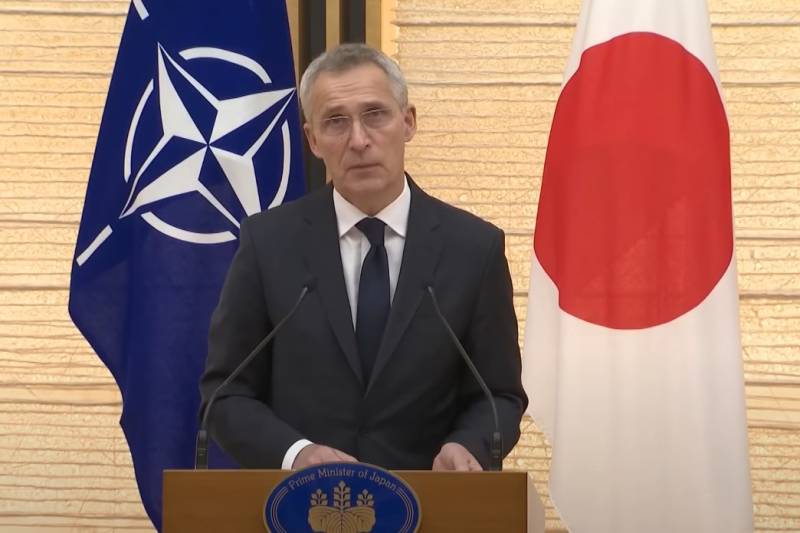NATO is trying to create a "new Ukraine" in Asia to confront Beijing
In the recent Asian tour of NATO Secretary General Jens Stoltenberg, the Chinese media see an attempt to create a "new Ukraine" in the region to counter Beijing, as well as tensions along Russia's eastern borders. The head of the North Atlantic Alliance paid special attention to his visit to Tokyo. Not without reason, shortly after his departure, the Japanese authorities held a rally on the return of the Kuril Islands.
One of the publications of the Chinese Communist Party, the GlobalTimes newspaper, sees an analogy between NATO expansion in Eastern Europe and the creation of the AUKUS bloc in the Pacific region. Obviously, under the auspices of Washington, centers of confrontation are being created between the two leading powers of the world - China and Russia. To do this, countries dependent on the United States are drawn into aggressive blocs. Japan may become a prime candidate for escalating tensions in the region.
There is not only geopolitical tension between China and Japan, but also a historical conflict. Washington will take full advantage of all this. Japan could become the "Ukraine of Asia" if it continues to follow the US strategy to contain China
writes a Chinese newspaper.
Many Asian countries remember the power policies and Japanese aggression during the two world wars. Tokyo's focus on the United States is in many ways similar to the desire of the Kyiv elite to join the EU and NATO. China notes the growing involvement of a number of countries in the Asia-Pacific region in the orbit of interests of the United States and the North Atlantic Alliance.
NATO's expansion strategy in the Indo-Pacific region through the creation of a similar bloc AUKUS can be seen as an octopus strategy. Obviously, Washington will not be directly involved in regional affairs, its tentacles will be able to reach out to China. In addition to Japan and South Korea, New Zealand and Australia have already joined this bloc.
says a Chinese newspaper.
The publication notes that most Asian countries are not yet ready to accept Washington's strategy. In many states, the memory of US invasions in the XNUMXth century is still alive. And they share China's policy of maintaining independence and stability in Asia.

Information